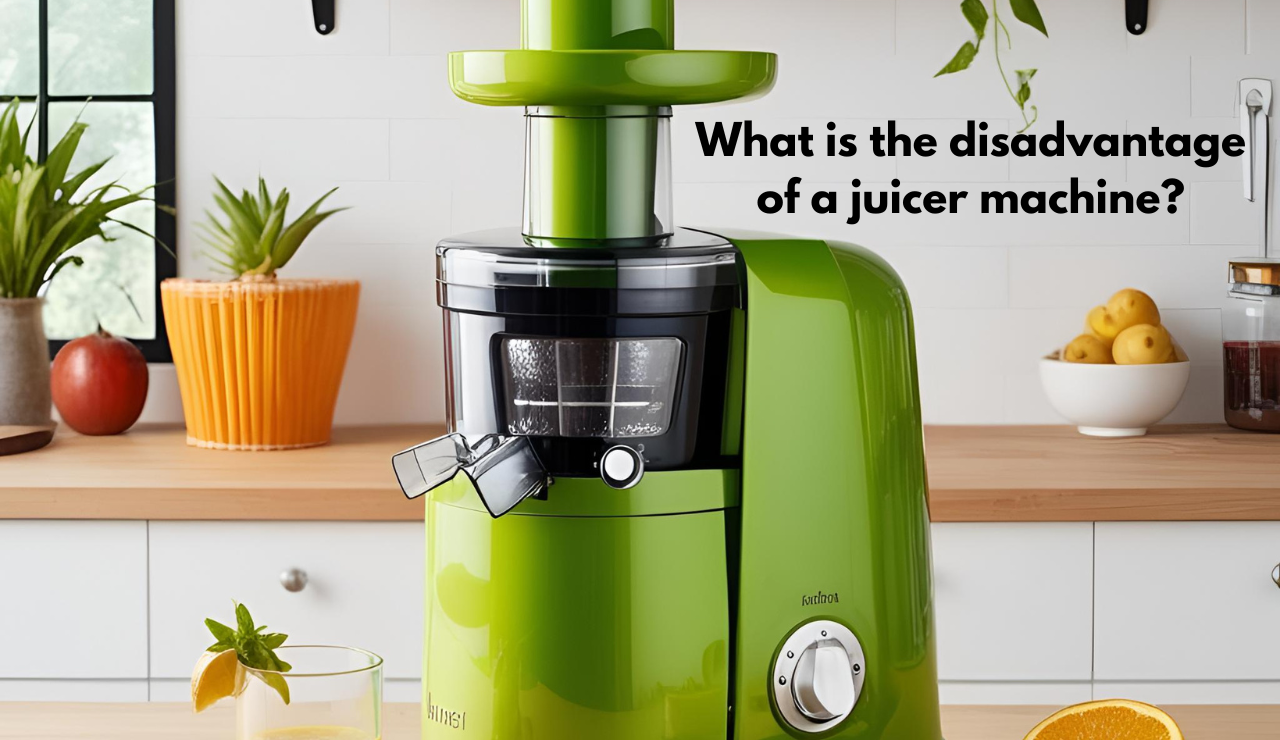Are you excited about sipping fresh juice every morning? Sounds great, right? But have you ever stopped to think about what you might be giving up for that convenience? Juicer machines may promise health and ease, but they come with their own set of hidden drawbacks.
From wasted nutrients to high maintenance, it’s worth taking a closer look. Let’s explore the not-so-sweet side of juicers before you make your next blend!
Table of Contents
Disadvantages of a Juicer Machine
When considering adding a juicer machine to your kitchen, it’s essential to weigh the pros and cons. Here are the key disadvantages of a juicer machine:
1. High Initial Cost
- Juicer machines, especially high-end models, can be pricey, with costs ranging from moderate to premium prices.
- On top of the initial expense, maintenance costs for blades, filters, or replacement parts can add up.
- When compared to more affordable options like blenders or manual juicers, juicer machines often feel like a big investment.
2. Loss of Fiber Content
- Juicers extract the juice but leave behind the pulp, which contains essential dietary fiber.
- Fiber is crucial for digestion, regulating blood sugar, and keeping you feeling full.
- Unlike juicers, blenders create fiber-rich smoothies, which can be a healthier choice for your diet.
3. Time-Consuming Cleaning Process
- Most juicers have several parts—like filters, blades, and pulp collectors—that need to be disassembled and cleaned thoroughly.
- Fine mesh filters can trap small food particles, making the cleaning process even more time-intensive.
- The time spent on cleaning can often feel like it outweighs the convenience of using the juicer in the first place.
4. Limited Versatility
- Juicers are mainly designed for juicing fruits and vegetables, so they can’t handle whole foods, seeds, or nuts.
- Blenders, on the other hand, are much more flexible. You can make smoothies, soups, and even nut butter with them.
- If you enjoy experimenting in the kitchen, the limitations of a juicer might feel restrictive.
5. Higher Waste Output
- Juicing produces a lot of pulp, which often ends up as waste if not repurposed.
- You can reduce waste by using the leftover pulp in baking, soups, or as compost.
- Still, the amount of waste can feel discouraging, especially when thinking about its environmental impact.
6. Energy Consumption
- Juicer machines require electricity to operate, and high-powered models can consume a lot of energy.
- Frequent use can increase your household’s energy bill.
- For those concerned about their carbon footprint, the environmental impact of juicers might be a drawback.
7. Noise Levels
- Centrifugal juicers are known to be noisy during operation, which can be disruptive, especially in quiet households or early mornings.
- If you’re sensitive to noise or have young children at home, this could be a problem.
- Masticating juicers or manual options are quieter alternatives, though they often come with their own set of challenges.
8. Bulky Size and Storage Issues
- Many juicers are large and take up a lot of counter or storage space.
- This can be a challenge for people with small kitchens or limited storage areas.
- Before purchasing, it’s worth considering whether the space it occupies is worth the convenience it offers.
9. Risk of Oxidation During Juicing
- High-speed juicers often generate heat and introduce air during the process, which can lead to oxidation.
- Oxidation reduces the nutritional quality of your juice.
- Masticating juicers are better at preserving nutrients but are slower and more expensive.
10. High Maintenance Requirements
- Regular cleaning and maintenance are necessary to keep the juicer functioning efficiently.
- Neglecting maintenance can lead to issues like buildup, clogging, or reduced performance.
- The financial and time costs of upkeep can add up over time.
Final Thoughts
Juicer machines have their benefits, but it’s clear they come with a fair share of disadvantages. Before purchasing one, consider your lifestyle, budget, and kitchen needs.
If you’re okay with the cost, maintenance, and storage challenges, a juicer could be a good fit. But if you’re looking for a more versatile and budget-friendly option, alternatives like blenders might be worth exploring.

